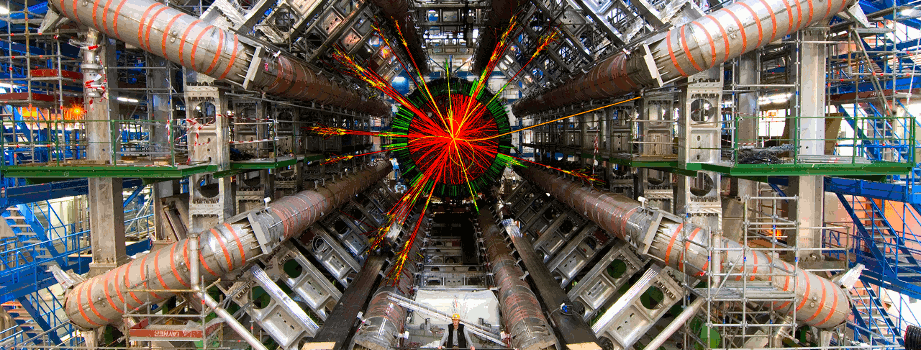Parallel Computing in the Search for New Physics at LHC

In the past few months we have had the pleasure of collaborating with Prof. Valerie Halyo of Princeton University on modernization of a high energy physics application for the needs of the Large Hadron Collider (LHC). The objective of our project is to improve the performance of the trigger at LHC, so as to enable real-time detection of exotic collision event products, such as black holes or jets.
For the numerical algorithm of the new trigger software, the Hough transform was chosen. This method allows fast detection of straight or curved tracks in a set of points (detector hits), which could be the traces of new exotic particles. The nature of the numerical Hough transform is highly parallelizable, however, existing implementations did not use hardware parallelism or used it sub-optimally.
Colfax’s role in the project was to optimize a thread-parallel implementation of the Hough transform for multi-core processors. The result of our involvement was a code capable of detecting 5000 tracks in a synthetic dataset 250x faster than prior art, on a multi-core desktop CPU. By benchmarking the application on a server based on multi-core Intel Xeon E5 processors, we obtained a yet 5x greater performance. The techniques used for optimization, briefly discussed in the report paper (see below), are featured in our book on parallel programming and in our developer training program. They focus on code portability across multi- and many-core platforms, with the emphasis on future-proofing the optimized application.
Our results are reported in a publication submitted for peer review to JINST (see link at the top and bottom of this post). Prof. Halyo’s work was also featured in an article in International Journal of Innovation, available for download here (courtesy of Prof. Halyo).
Manuscript of Publication: ![]() http://arxiv.org/pdf/1310.7556 (submitted to JINST)
http://arxiv.org/pdf/1310.7556 (submitted to JINST)
Publication in JINST: doi:10.1088/1748-0221/9/04/P04005
Feature in International Journal of Innovation: ![]() p36-38_Valerie_Halyo-LR.pdf (724 KB)
p36-38_Valerie_Halyo-LR.pdf (724 KB)